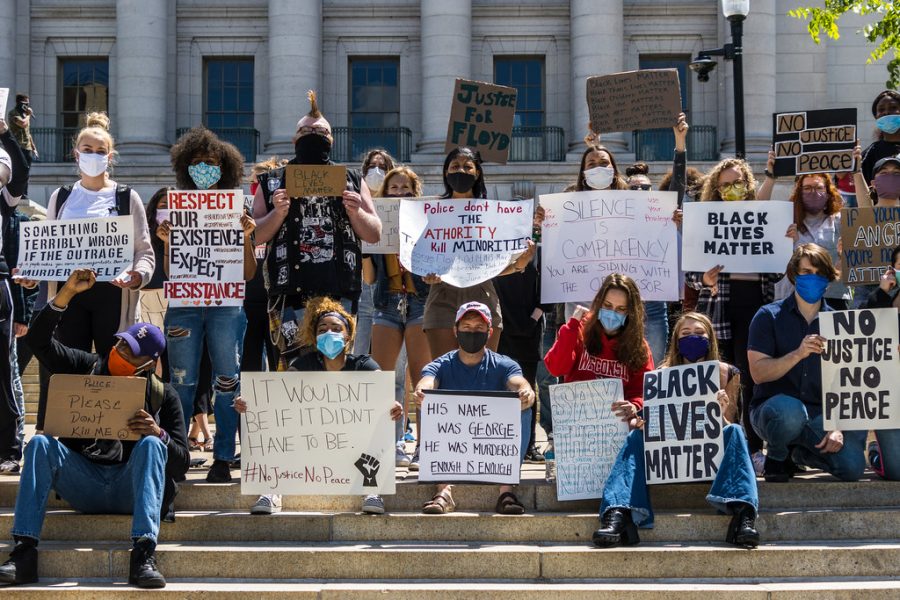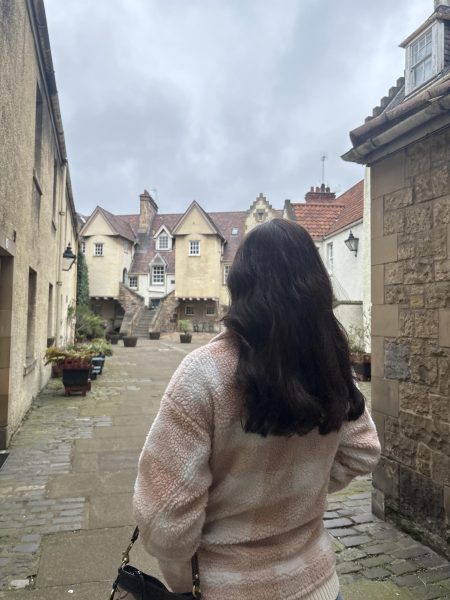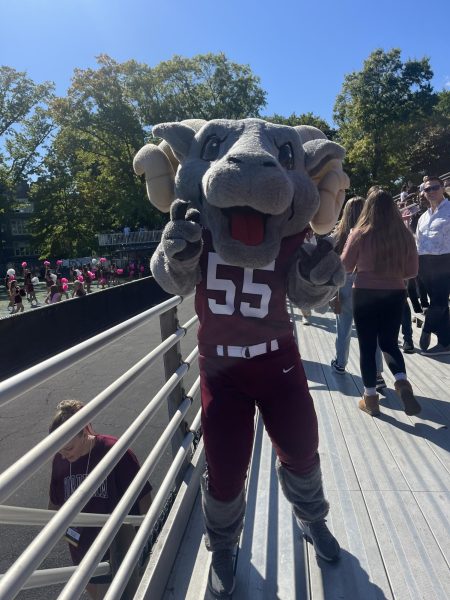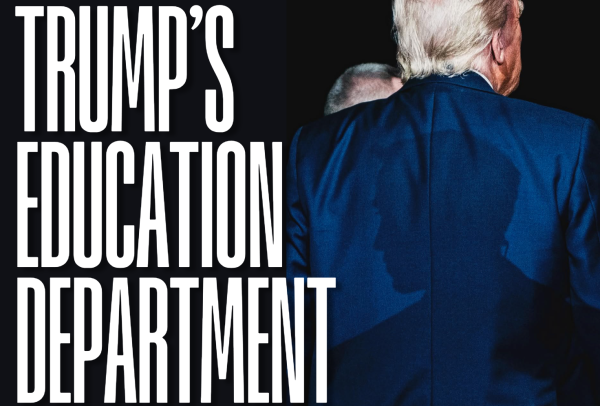Police Brutality Protests Highlight Racial Disparities in Challenging Injustice
Those that condemn the nationwide protests sparked by the killing of George Floyd as riots destroying law, property and order demonstrate the continuing application of a great contraction established before American independence: that two people of different races, black and white, have a fundamentally different and unequal capacity to challenge injustices levied against them. This contradiction establishes an invisible apartheid, an “existential deviation,” in the words of psychiatrist Frantz Fanon, that structurally inhibits injustices against the black community to be remedied with the same tools which the white community employ. To John Adams, the Boston massacre — in which eight British soldiers fired into a harassing mob — was where “the foundation of independence was laid.” The injustice of British soldiers firing into a mob triggered the riots, regardless of whether the British were physically provoked. A mob of 1,000 people rioted violently for a day. In order to ease tensions, all soldiers involved with the shooting were arrested and British soldiers evacuated the city. Violent protest against police brutality was celebrated, immortalized and propagated throughout the colonies to spark revolution. However, this is not the complete story. While the massacre was lionized by patriots trying to incite rebellion, one victim of the massacre was being smeared in court. John Adams blamed the whole event on the half-black, half-Native American Crispus Attucks, the first casualty of the massacre, whose “very look was enough to terrify any person” and to whose “mad behavior, in all probability, the dreadful carnage of the night is chiefly to be described.” Adams was defending the British soldiers in court and, with this racially charged defense, acquitted six of the eight soldiers. Attucks — the first casualty — was blamed for inciting the violence of the night. Christopher Monk, a white man merely wounded in the massacre, became representative of the revolutionary zeitgeist: violent resistance against British occupation.
The signers of the Declaration of Independence resolved that “it is their right, it is their duty, to throw off such Government” that produces “a long train of abuses and usurpations, pursuing invariably the same Object evinces a design to reduce them under absolute Despotism.” What actions did they take to resolve their grievances, to alleviate the injustices they felt subjugated to? They tarred and feathered tax officials and those informing on colonial smugglers, sanctioning torture in protest of British injustice. Britain’s reaction — attempting to promote law and order by instituting the Intolerable Acts — marks the moment in which the colonies deemed it their moral duty to declare independence. It was common sense, as Thomas Paine described, that “violence which is done and threatened to our persons … conscientiously qualifies the use of arms,” regardless of whether the colonists were the first to use violence.
Shays’ Rebellion, occurring in a newly independent America in 1787, reaffirmed the inherent right to violence in pursuit of justice. Angered by taxation, white farmers rebelled in western Massachusetts in a violent attempt to overthrow the government. After Massachusetts suppressed the rebellion, Shays was pardoned. Thomas Jefferson wrote that no other rebellion was “so honorably conducted.” Jefferson continued that “the tree of liberty must be refreshed from time to time with the blood of patriots and tyrants. It is its natural manure.”
Jefferson’s enthused support for violent insurrection against injustice remained conspicuously absent during the Haitian Revolution, Gabriel’s rebellion and Denmark Vesey’s rebellion. Through his silence, Jefferson set a precedent that denied moral legitimacy to violent black rebellions fighting much clearer injustices than any white America had to face, a precedent reinforced throughout American history.
The Battle of the Alamo has long been enshrined in American culture as a heroic stand of individual liberty against Mexican oppression. Heroes such as Davy Crockett sacrificed themselves for the cause. Never mind most of the fighters at the Alamo were illegal American immigrants. Never mind these Americans were invariably southern slave owners. Never mind that the antagonists of the Texan Revolution were the laws of April 6, 1830, Mexico’s attempts to outlaw slavery in Texas. Never mind that. The Alamo remains in the American consciousness today, reinforced by museums, monuments and United States stamps celebrating American heroism in defending slavery.
In 1854, while serving as ambassador to Great Britain, James Buchanan hosted a party for Italian revolutionaries Giuseppe Mazzini and Giuseppe Garibaldi, along with other European revolutionaries. Mazzini and Garibaldi advocated for and eventually led a violent rebellion to achieve Italian unification. Buchanan declared as president that the “great object” of his administration would be to “arrest, if possible, the agitation of the slavery question.” What difference was there in the struggle for liberty between the Italian intelligentsia and the American slaves? The oppressed in Italy were white, while the American slaves were black. Never mind the Italians were still free while black Americans were enslaved.
An ignorant critic might protest that these actions were in the remote past and that no such paradox exists today. Did the Civil Rights movement succeed in eradicating the dichotomy between remedies available to the white and black persecuted? I say no. The great strides advanced by the black community during the Civil Rights movement were not achieved by using the instruments proven by America’s founders for fighting white injustice. These instruments — violent protest and armed insurrection — remained and remain to this day unavailable to the black community. Instead, civil rights leaders such as Martin Luther King Jr. created a form of protest alien to the United States and Western thought: nonviolent civil disobedience. Nonviolent protest, whose modern form was first articulated by Gandhi — inspired by Leo Tolstoy and Eastern thought — had not been seen before in the United States. Denied the tool of violence America’s founders used to rectify injustice, Martin Luther King had no choice but to adopt nonviolent protest, which was designed to overthrow the tyrannical minority through the power of the oppressed majority. Therein lies the weakness in the Civil Rights movement. Denied a majority, nonviolent protest can never fully succeed unless the majority — the beneficiary of whatever injustice is occurring — agrees to voluntarily give up their benefits to alleviate the suffering of the minority.
In 1967, President Lyndon B. Johnson appointed the Kerner Commission to investigate the causes of the 1967 race riots. The commission concluded that “our nation is moving towards two societies, one black, one white—separate and unequal.” The commission continued that “what white Americans have never fully understood but what the Negro can never forget—is that white society is deeply implicated in the ghetto. White institutions created it, white institutions maintain it, and white society condones it.” This report was promptly ignored. We have continued in our path toward two societies — two societies separated socially, economically and politically. But even worse, one society refuses the other the instruments needed to bridge this separation. We must now ask ourselves whether white society will continue to be blind to the cruel radiance of the racial disparities of civil discontent.
Matthew Biedermann, FCRH ‘22, is an international political economy major from Bedford, N.H.









































































































































































































